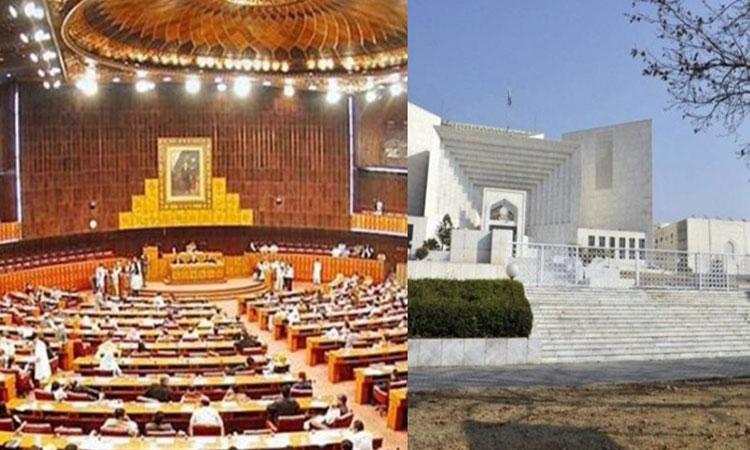The Pakistan National Assembly on Thursday passed a resolution rejecting the three-member Supreme Court bench's "minority" verdict on the Punjab elections and made it binding on Prime Minister Shehbaz Sharif and his cabinet not to implement the decision, media reports said.
The resolution was moved by Balochistan Awami Party lawmaker Khalid Magsi and approved by a majority of the lawmakers, Geo News reported.
It noted that the National Assembly on March 28, in a resolution, had called on the Supreme Court to avoid "interfering" in political matters. It also observed that multiple sections of the society had repeatedly urged the apex court to form a full court bench but their calls were ignored and only one political party was heard in the case.
"Completely ignoring the clear resolution of the Parliament and the majority decision of the four judges of the Supreme Court, the three-member special bench enforced a minority opinion, which is a violation of the traditions, precedents and procedures of the Supreme Court," noted the resolution. It added that a minority was imposed on the majority.
Also read | Shehbaz calls meet of top security body as Pak govt locks horns with SC
The resolution also expressed concerns over the Supreme Court's circular setting aside the verdict of a three-member bench on suo motu cases. It also raised alarms over the formation of a controversial bench and its decision to quickly close the case that prompted Justice Qazi Faez Isa to suspend "suo motu" hearings.
The lower house of Parliament also aired fears over the "undue judicial interference in political matters". It also pointed out that the "minority ruling" had given rise to political instability and paved the way for divisions in the federal units, Geo News reported.


















